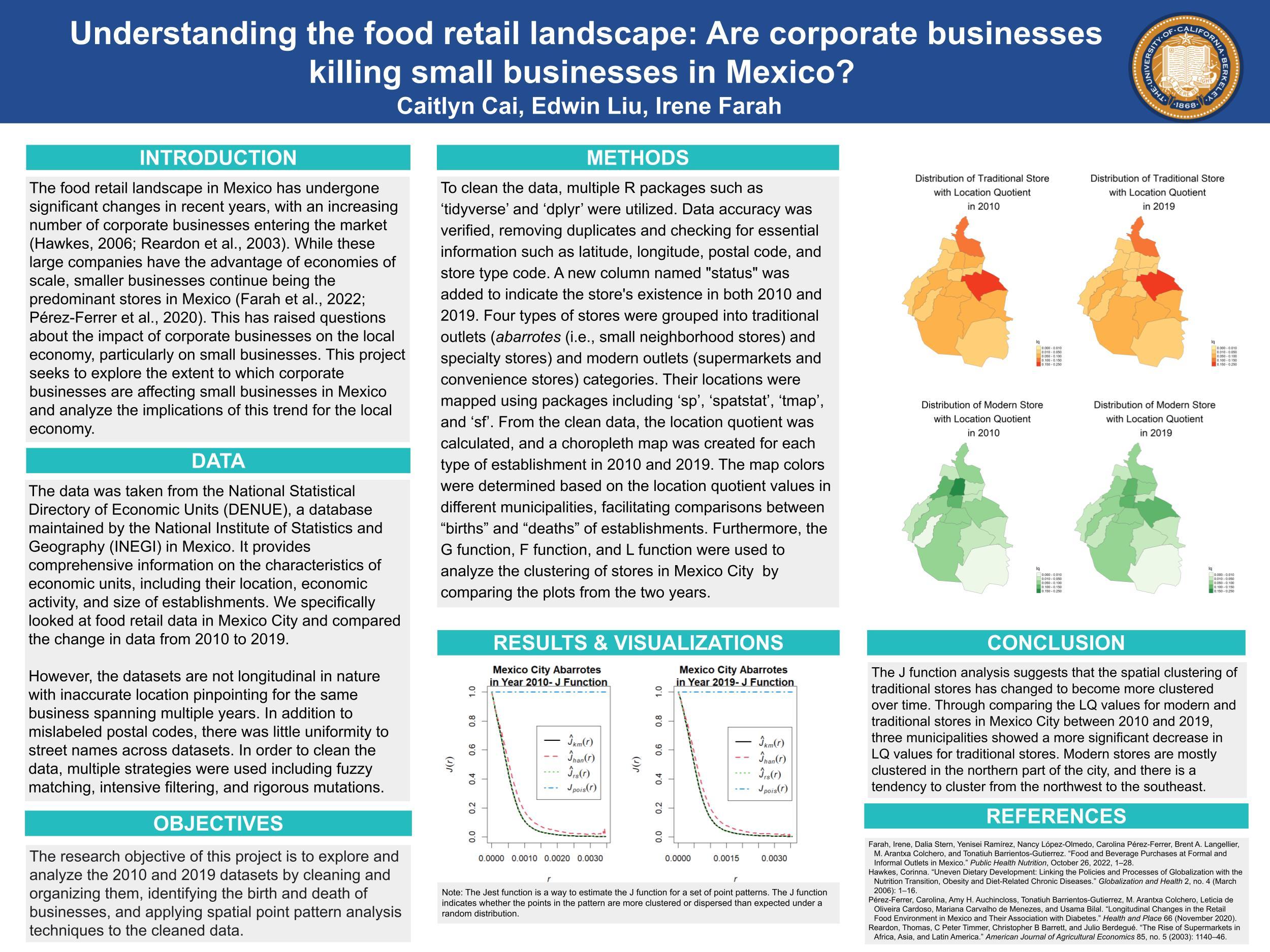Over the last two decades, density of supermarkets and convenience stores has increased in the global south, putting at risk the survival of small businesses in neighborhoods (Popkin & Reardon, 2018; Reardon et al., 2003; Reardon & Berdegué, 2003). Yet, little is known about how much these corporate businesses have replaced food purchases from small businesses. Previous research has recognized that despite the increase of corporate food businesses, a wide variety of food retailers, such as small neighborhood stores and street markets still predominate (Capron et al., 2018; Farah et al., 2022; Skinner & Haysom, 2016), and the presence of the informal food sector is ubiquitous (Battersby et al., 2016; Downs et al., 2020; González Arellano & Capron, 2020; Simon, 2007; Turner et al., 2018, 2020).
However, this research has focused on food consumption patterns and has not examined the likelihood of small businesses to survive in the presence of a new corporate business in a neighborhood. Thus, this project will empirically analyze if corporate businesses have been displacing smaller businesses in the case of Mexico City. Basing our work on the demography of businesses (van Wissen, 2002) and using the National Statistical Directory of Economic Units data, we will employ spatial point pattern analysis to examine if the “birth” of corporate businesses “kill” small businesses from 2009 to 2014, and from 2014 and 2019.

